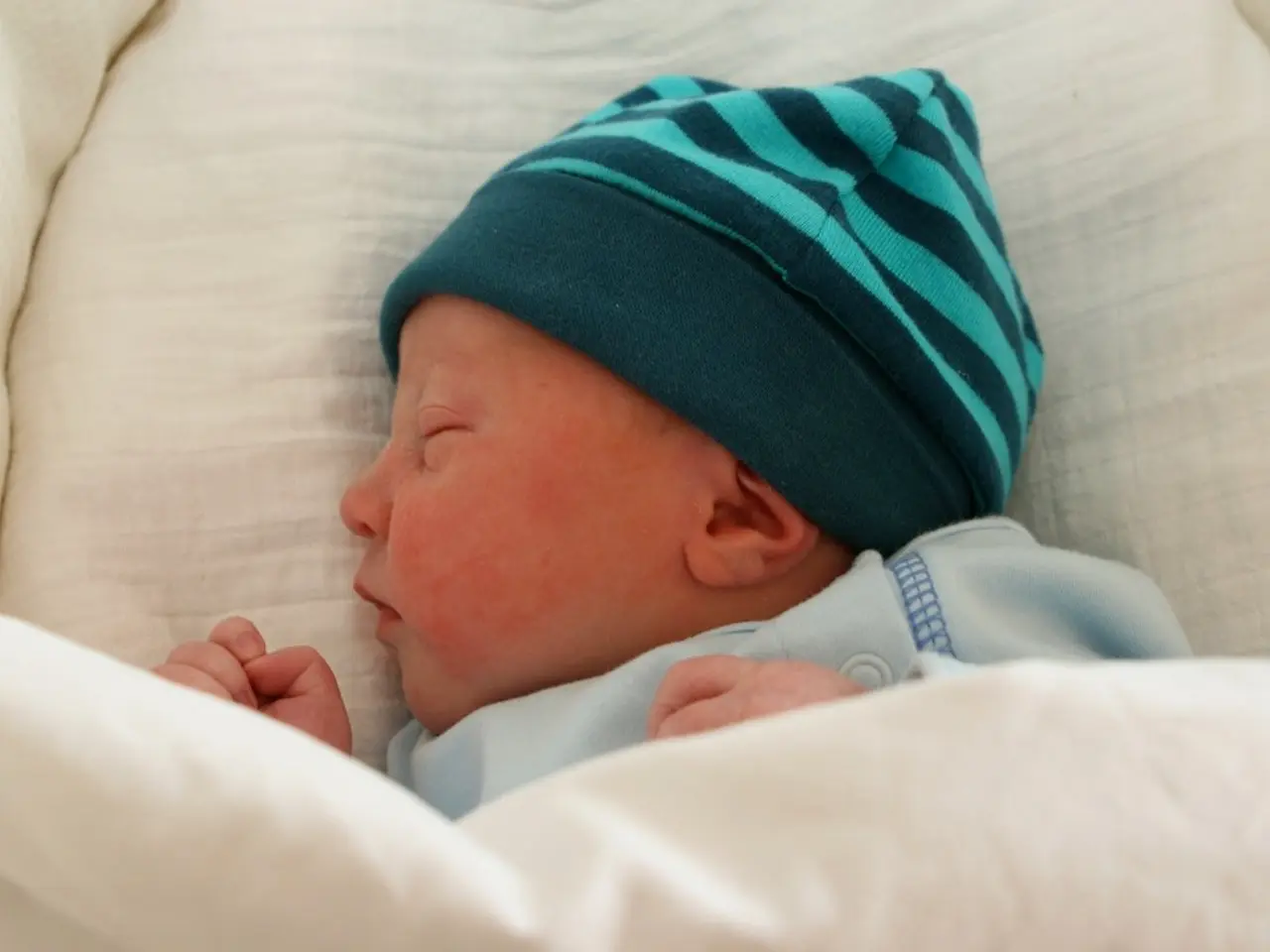Information on Sleep Aids for Babies: Essential Knowledge for Nigerian Parents
Sleep is essential for the overall well-being and development of infants, playing a vital role in their growth and helping in the formation of neural connections in their brains. In Nigeria, parents often seek safe and natural sleep aids to help their infants get a good night's sleep. This article provides essential information about sleep aids for infants, focusing on non-pharmacological, gentle methods, and natural environmental adjustments.
Soothing Sleep Environments and Routines
Establishing consistent bedtime routines and sleep environments conducive to rest can significantly improve infant sleep patterns naturally. A routine might include swaddling or using sleep sacks, providing a pacifier, or using gentle techniques for sleep training. Consistency helps babies develop healthier sleep cycles [3].
Creating a calm and cool sleep environment is also crucial. Using white noise machines can help infants settle better and extend sleep duration by masking disruptive sounds and fostering a calming sleep environment [4]. Ensuring the room is not too hot or cold can help create a comfortable sleep environment.
Gentle Rhythmic Motion Devices
Products like the Baby Patter mat provide soft, rhythmic patting-like motion that mimics a parent's comforting touch, helping babies soothe themselves to sleep naturally without overstimulation. This device is made of non-toxic materials, safe for use in cribs or bassinets, and has been reported to ease fussiness, including colic and reflux-related discomfort [1][3].
Avoiding Supplements Such as Melatonin
Melatonin supplements are generally not recommended for infants and children under three years without medical supervision due to unclear safety and developmental concerns. Instead, focus on behavioral and environmental strategies first, consulting a pediatrician if sleep problems persist [5].
Safe and Cozy Sleep Spaces
Providing a safe and cozy sleep space, such as a crib, can facilitate uninterrupted sleep. Always place your baby on their back to sleep, avoid using soft bedding, pillows, and stuffed toys, ensure the crib mattress is firm and fits snugly, use a fitted sheet specifically designed for the crib mattress, remove any cords, strings, or ribbons hanging near the crib, and maintain a comfortable room temperature are guidelines for safe sleeping practices [2].
Dealing with Sleep Regressions
Around 4 months, infants experience sleep regressions due to brain development and growth spurts, which can lead to increased night waking, difficulty falling asleep, and shorter naps. Providing extra comfort and reassurance during bedtime and overnight wake-ups can help cope with sleep regressions. Offering additional naps or adjusting nap times can help compensate for any lost nighttime sleep during these periods [6].
Importance of Consulting a Pediatrician
If your infant consistently struggles to fall asleep or stay asleep, consult a pediatrician or sleep specialist. Common issues affecting sleep in infants include colic, teething, and sleep associations. Consulting with a pediatrician before considering any form of sleep aid for an infant is recommended [7].
In summary, for infants in Nigeria, safe and natural sleep aids revolve around creating soothing, consistent sleep environments and employing gentle techniques like rhythmic motion mats and white noise machines. Direct use of herbal or melatonin supplements in infants is not advisable without medical advice. Consulting local pediatric healthcare providers can also provide culturally appropriate and safe guidance tailored to the infant's specific needs.
- Establishing consistent bedtime routines and sleep environments can significantly improve infant sleep patterns naturally.
- Creating a calm and cool sleep environment is crucial for infants, with white noise machines helping to mask disruptive sounds.
- Products like the Baby Patter mat offer a safe and natural way to soothe babies to sleep by providing soft, rhythmic motion.
- Melatonin supplements are generally not recommended for infants due to unclear safety and developmental concerns.
- Providing a safe and cozy sleep space, such as a crib, can facilitate uninterrupted sleep for infants.
- Around 4 months, infants may experience sleep regressions due to brain development and growth spurts, which can be addressed by providing extra comfort.
- If an infant consistently struggles to fall asleep or stay asleep, consulting a pediatrician or sleep specialist is recommended to identify any issues affecting sleep and discuss safe sleep aids.




